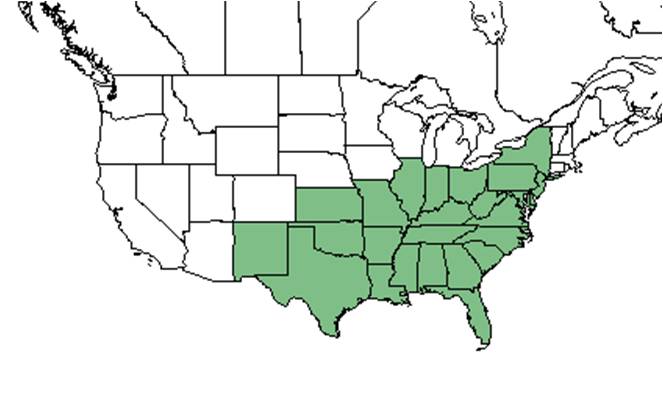Difference between revisions of "Phoradendron leucarpum"
KatieMccoy (talk | contribs) (→References and notes) |
KatieMccoy (talk | contribs) |
||
| Line 29: | Line 29: | ||
===Phenology=== <!--Timing off flowering, fruiting, seed dispersal, and environmental triggers. Cite PanFlora website if appropriate: http://www.gilnelson.com/PanFlora/ --> | ===Phenology=== <!--Timing off flowering, fruiting, seed dispersal, and environmental triggers. Cite PanFlora website if appropriate: http://www.gilnelson.com/PanFlora/ --> | ||
| − | It has been observed fruiting January, March, November and December; and | + | It has been observed fruiting January, March, November and December; and flowering January, October, and December (FSU Herbarium). |
===Seed dispersal=== | ===Seed dispersal=== | ||
Revision as of 15:23, 12 November 2015
| Phoradendron leucarpum | |
|---|---|
Error creating thumbnail: Unable to save thumbnail to destination
| |
| Scientific classification | |
| Kingdom: | Plantae |
| Division: | Magnoliophyta - Flowering plants |
| Class: | Magnoliopsida – Dicotyledons |
| Order: | Santalales |
| Family: | Viscaceae |
| Genus: | Phoradendron |
| Species: | P. leucarpum |
| Binomial name | |
| Phoradendron leucarpum (Raf.) Reveal & M.C. Johnst. | |

| |
| Natural range of Phoradendron leucarpum from USDA NRCS Plants Database. | |
Common name: oak mistletoe
Contents
Taxonomic notes
Description
Distribution
Ecology
Habitat
Phoradendron leucarpum can be found in mixed hardwoods, cypress swamps, tupelo swamps, floodplain forests, and pine/oak scrubs (FSU Herbarium). It is a parasitic plant that has been observed growing on Fraxinus, Liquidambar, Quercus nigra, Carya glabra, Prunus umbellata, Prunus angustifolia, Celtis laevigata, Quercus myrtifolia, Prunus serotina, Planera aquatica, Carya aquatica, Quercus virginiana, Acer, Morus, Populus, Ulmus and Magnolia (FSU Herbarium).
Phenology
It has been observed fruiting January, March, November and December; and flowering January, October, and December (FSU Herbarium).
Seed dispersal
Seed bank and germination
Fire ecology
It has been observed in recently burned pine forests (FSU Herbarium).
Pollination
The following Hymenoptera families and species were observed visiting flowers of Phoradendron leucarpum at Archbold Biological Station (Deyrup 2015):
Vespidae: Mischocyttarus cubensis
Use by animals
Diseases and parasites
Conservation and Management
Cultivation and restoration
Photo Gallery
References and notes
Deyrup, M.A. and N.D. 2015. Database of observations of Hymenoptera visitations to flowers of plants on Archbold Biological Station, Florida, USA.
Florida State University Robert K. Godfrey Herbarium database. URL: http://herbarium.bio.fsu.edu. Last accessed: October 2015. Collectors: Loran C. Anderson, J. Beckner, Kathy Craddock Burks, J. Carmichael, Nancy Edmonson, Mildred E. Feagle, Angus Gholson Jr., William T. Gillis, Robert K. Godfrey, D.W. Hall, B.K. Holst, Roy N. Jervis, Beverly Judd, Walter S. Judd, Robert L. Lazor, N. Lee, Karen MacClendon, K.M. Meyer, Chas. A. Mosier, C. Morgan, John B. Nelson, Jose Luis Serna, G.K. Small, John K. Small, A. Townesmith, Chris Wall, Randy Wall, D.B. Ward. States and Counties: Florida: Alachua, Calhoun, Collier, Franklin, Gadsden, Hernando, Highlands, Jackson, Jefferson, Leon, Liberty, Marion, Polk, Sarasota, Taylor, Wakulla. Georgia: Decatur, Thomas. Country: Mexico. Compiled by Tall Timbers Research Station and Land Conservancy.